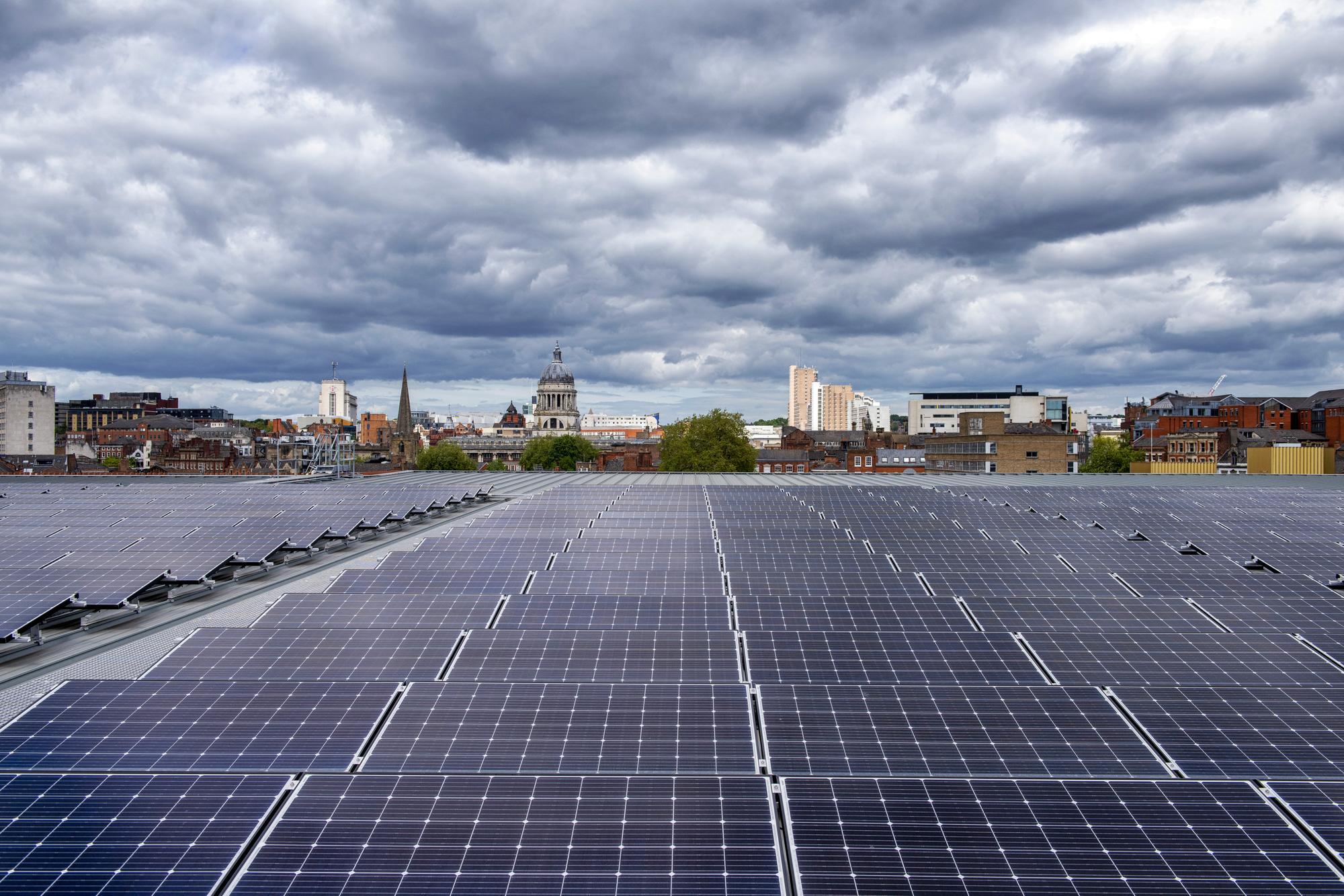Project background – 2024 data update
In 2021, the Midlands Net Zero Hub commissioned consultants kMatrix and Sustainability West Midlands to carry out an exercise to report on the size and health of the green economy in the Midlands. The Low Carbon Goods and Services (LCEGS) study provided a powerful evidence base, which has been used to support the development of projects.
The data provided a snapshot of the market for goods and services that improve the environment and/or actively assist in the move to net zero, and demonstrated the size, scale, and value of the LCEGS sector to each local authority in the region. It also highlighted areas of strength to build on and areas of weakness to improve.
A significant amount has changed since 2021, including the recovery from Covid-19, the impact of which was obvious in the original reports. The Hub has therefore worked with kMatrix and Sustainability West Midlands, with a contribution from Midlands Engine, to update the results of the exercise to include data from 2024.
Project overview
Local authorities from across the Midlands continue to work to support and grow the green economy. The 2024 review of the Low Carbon Goods and Services data across the Midlands was required to ensure that progress is continuing. The resulting LCEGS datasets can be used by the Hub and partner local authorities as a proxy for the green economy, track the state of the sector, and highlight skills challenges across the region to reach net zero targets.
In 2023/24, the LCEGS sector was worth £31bn (up from £26.8bn in 2021) in total sales and supported 224,831 FTE employees, which accounts for 8.3% of the Hub region’s GDP. This is forecast to rise to over £46bn by 2029/30.
The Low Carbon Goods and Services sector therefore continues to be an extremely important part of the region’s economy.
Project outputs
The primary output from the LCEGS work is a series of reports which define and quantify the scale of the LCEGS sector across the Midlands.
Due to changes in governance structures and the phasing out of LEPs, the outputs from this study slightly changed from 2021 are focussed on the District/Borough/Unitary local authority level. There is also an overarching report of the LCEGS for the Midlands Net Zero Hub region.
The full list of reports produced through this project is below:
Midlands Net Zero Hub Summary Report
Coventry & Warwickshire
- Coventry & Warwickshire Summary Report
- Coventry City Council
- North Warwickshire Borough Council
- Nuneaton & Bedworth Borough Council
- Rugby Borough Council
- Stratford-upon-Avon District Council
- Warwick District Council
East Midlands Combined County Authority (EMCCA)
- East Midlands Combined County Authority summary report
- Amber Valley District Council
- Ashfield District Council
- Bassetlaw District Council
- Bolsover District Council
- Broxtowe District Council
- Chesterfield District Council
- Derby City Council
- Derbyshire Dales District Council
- Erewash Borough Council
- Gedling District Council
- High Peak Borough Council
- Mansfield District Council
- Newark & Sherwood District Council
- North East Derbyshire District Council
- Nottingham City Council
- Rushcliffe Borough Council
- South Derbyshire District Council
Greater Lincolnshire
- Greater Lincolnshire Summary Report
- Boston Borough Council
- East Lindsey District Council
- Lincoln City Council
- North East Lincolnshire Council
- North Kesteven District Council
- North Lincolnshire Council
- South Holland District Council
- South Kesteven District Council
- West Lindsey District Council
Leicestershire County & Rutland County
- Leicestershire County & Rutland County Summary Report
- Blaby District Council
- Charnwood Borough Council
- Harborough District Council
- Hinckley & Bosworth Borough Council
- Leicester City Council
- Melton Borough Council
- North West Leicestershire District Council
- Oadby & Wigston District Council
- Rutland County Council
The Marches
Stoke & Staffordshire
- Stoke & Staffordshire Summary Report
- Cannock Chase District Council
- East Staffordshire Borough Council
- Lichfield District Council
- Newcastle-under-Lyme District Council
- South Staffordshire Council
- Stafford Borough Council
- Staffordshire Moorlands District Council
- Stoke-on-Trent City Council
- Tamworth Borough Council
West Midlands Combined Authority (WMCA)
- West Midlands Combined Authority summary report
- Birmingham City Council
- Coventry City Council
- Dudley Borough Council
- Sandwell Borough Council
- Solihull Borough Council
- Walsall Council
- Wolverhampton City Council

